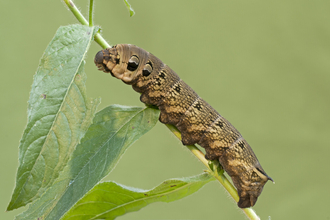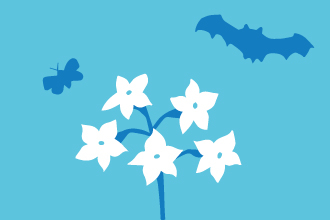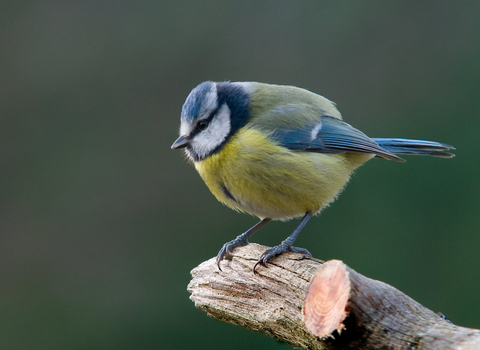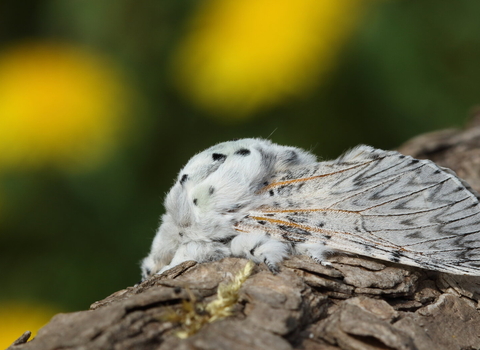
Puss moth © Vaughn Matthews
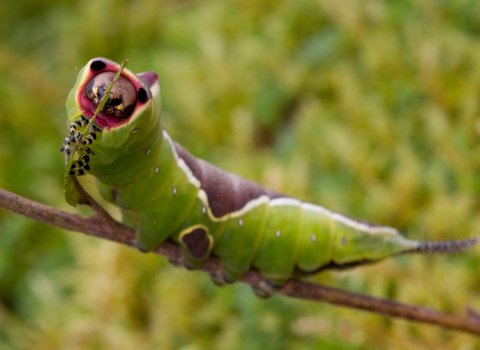
Puss moth caterpillar ©Vaughn Matthews
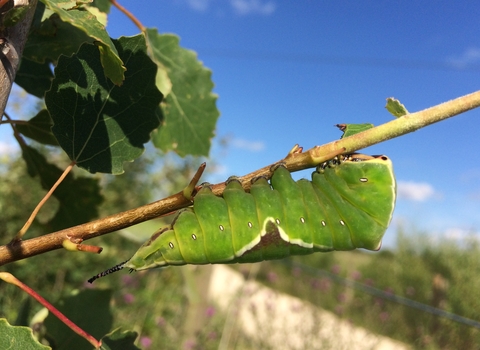
Puss moth caterpillar © Tom Hibbert
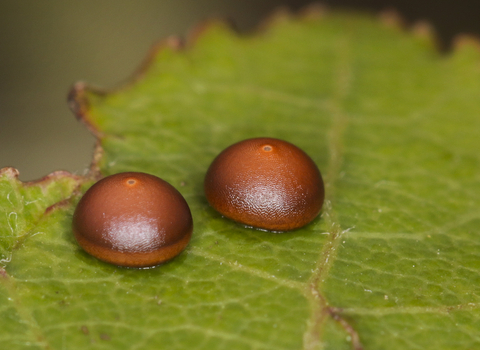
Puss moth eggs on an aspen leaf © Frank Porch
Puss moth
The puss moth is a large and fluffy moth, with a very strange looking caterpillar.
Scientific name
Cerura vinulaWhen to see
Adult: May-JulyCaterpillar: June-September
Species information
Category
Statistics
Wingspan: 45-70mmConservation status
Common
About
Puss moths are so fluffy they were named after pussycats! Their legs and body are covered in dense white hair and even the wings look furry. They can be found across most of the UK, in a wide variety of habitats, including parks and gardens - as long as there are poplars or willows for the caterpillars to feed on.The adult moths fly at night between May and July, when they can be attracted to lights. Females lay their orange-brown eggs on the upper surface of a willow or poplar leaf, either singly or in clusters of two or three. When the tiny dark brown caterpillars emerge, they have two long tails that they raise to scare off predators.
The caterpillars quickly grow into fat, green creatures with a red face featuring two false eyes. They keep the tails for scaring predators, but if that doesn't work they have a secret weapon - they can squirt formic acid at their attacker. When they're fully fed, the caterpillars wander in search of a place to pupate. They use their strong jaws to chew up bark, mixing it with silk to create a tough cocoon on a tree trunk. They spend the winter as a pupa, inside their cocoon, before emerging in spring - though they sometimes remain in this state for two winters.
How to identify
A large and furry, white or greyish-white moth, with a scattering of neat black spots on the body and base of the forewings. The outer half of each forewing is covered by steeply undulating lines, creating a beautiful wavy pattern.Young caterpillars are tiny and dark brown, with two short, horn-like projections behind the head and two long 'tails'. As they grow, they take on yellow, brown and green colours to blend in with the leaves they feed on. Older caterpillars are large and mostly green, with a dark saddle-like pattern on their back, bordered with white. Their body swells out around the head, with a red patch at the front, and two black spots that look like eyes, so that the caterpillar seems to have a giant cartoon face! They still have the two long tails, which are covered in black blobs.

